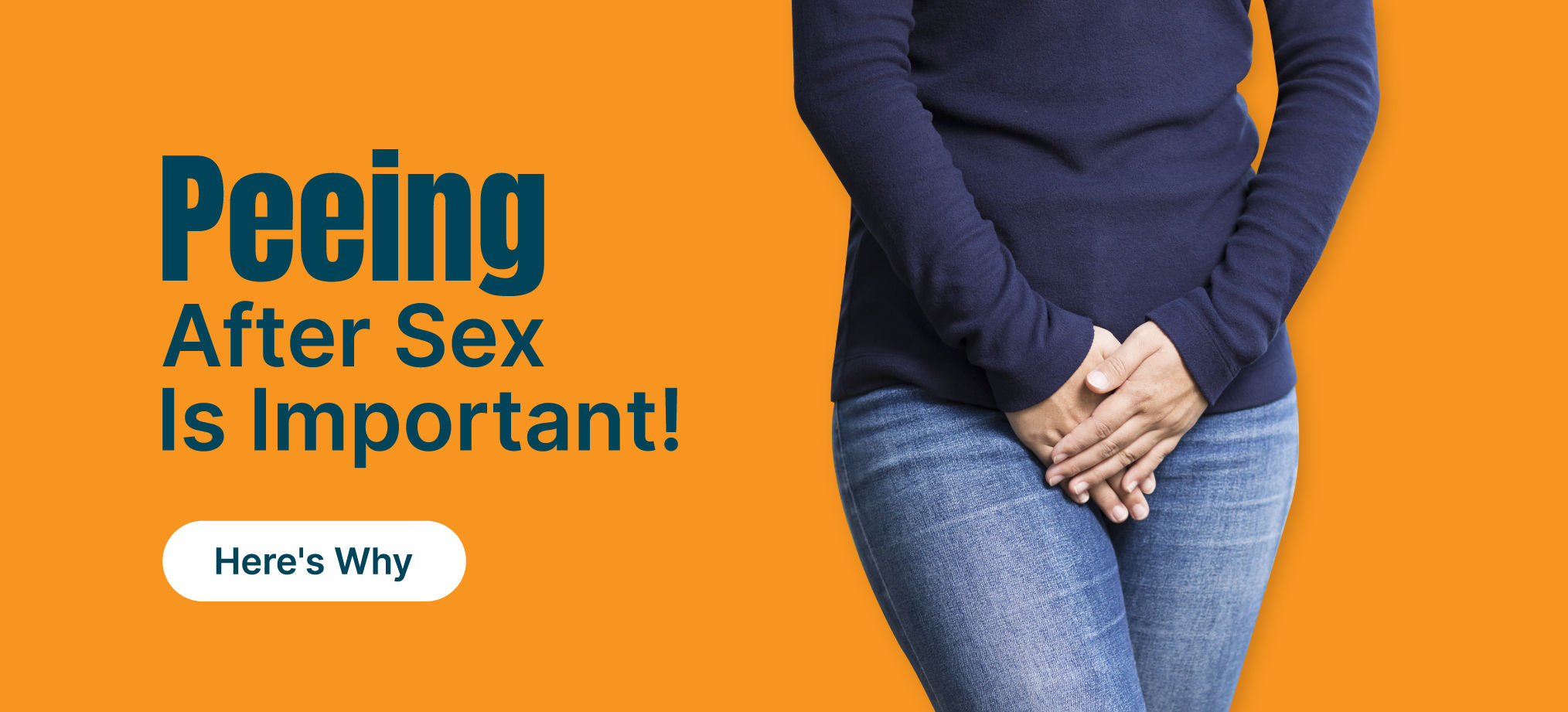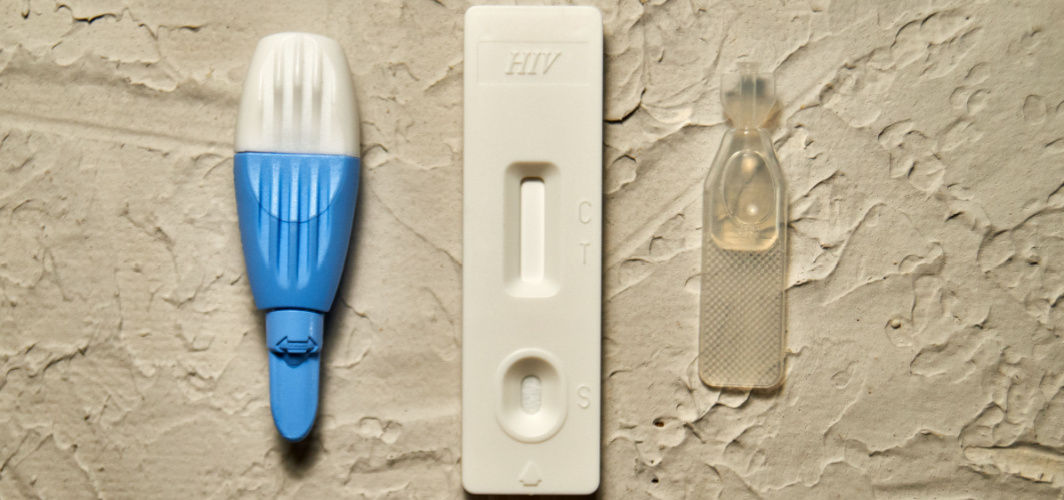Sexual Wellness
Worried About HIV Exposure? A Simple HIV Test Can Give You Clarity and Control
6 min read
By Apollo 24|7, Published on - 30 May 2025
Share this article
0
0 like
.jpg?tr=q-80)
If you've had a possible exposure to HIV or have been worrying about your HIV status, you’re not alone. The anxiety can be daunting, tending to keep you up at night as you worry. But among the most empowering things you can do for your peace of mind, as well as for your health in the years to come, is to have an HIV test. Getting an early HIV diagnosis through a quick HIV test is crucial, not only to control the virus successfully but also to avoid passing it to someone else. In this article, we’ll delve into everything you need to know about HIV testing: what it is, why it matters, who should consider it, the types of tests available, how to prepare, and what to expect from your results.
What Is an HIV Test?
An HIV test is a medical screening used to detect the presence of the human immunodeficiency virus (HIV) in the body. HIV attacks the immune system, specifically the CD4 cells (T cells), which help fight off infections. Left untreated, HIV can lead to acquired immunodeficiency syndrome (AIDS).
There are several types of HIV tests, including:
- Antibody Tests: Detect the antibodies your body produces in response to HIV.
- Antigen/Antibody Tests: Look for both HIV antibodies and antigens (a part of the virus itself).
- Nucleic Acid Tests (NAT): Detect the actual virus in the blood.
Most tests use a blood sample or oral fluid (saliva), and some can give results within 20 minutes. Others are sent to a laboratory for analysis and may take a few days.
Why Is an HIV Test Important?
The importance of an HIV test cannot be overstated. Here’s why:
- Early Detection Saves Lives: Identifying HIV early allows individuals to start antiretroviral therapy (ART) before symptoms appear, significantly reducing the risk of health complications.
- Undetectable Viral Load Cannot be Transmitted: With consistent treatment, people with HIV can achieve an undetectable viral load, meaning they cannot pass the virus to others.
- Empowerment Through Knowledge: Whether the result is positive or negative, knowing your status gives you control over your health and decisions.
- Protecting Your Partner(s): Early testing helps prevent the spread of HIV to sexual or needle-sharing partners.
- Routine Health Check: HIV testing is an essential part of sexual health, especially for people with multiple partners or those in high-risk groups.
Who Should Get an HIV Test?
The World Health Organization and various national health services, including the NHS, recommend routine HIV testing for specific groups, but ideally, everyone should know their HIV status. Consider an HIV test if you:
- Have had unprotected sex with a new or multiple partners.
- Are a man with male partners.
- Have shared needles or other drug-injection equipment.
- Are pregnant or planning to become pregnant.
- Have been diagnosed with another sexually transmitted infection (STI).
- Have a partner who is HIV-positive or whose HIV status is unknown.
- Are experiencing symptoms like prolonged fever, night sweats, swollen lymph nodes, or unexplained weight loss.
- If you fall into any of the above categories or simply wish to know your status, don’t wait and get an HIV test.
When Should You Get Tested?
The timing of your test matters because of something called the window period—the time between exposure to HIV and the point at which a test can reliably detect the virus.
- Antibody tests can take 3 to 12 weeks after exposure to become accurate.
- Antigen/antibody tests can detect HIV 2 to 6 weeks after exposure.
- Nucleic acid tests (NAT) can detect HIV as early as 10 to 33 days after exposure.
If you think you’ve been exposed to HIV very recently (within the last 72 hours), post-exposure prophylaxis (PEP) may be available to reduce your risk of infection. However, this must be started within 3 days of exposure.
Types of HIV Tests Available
There are different types of HIV tests to suit individual needs and situations:
1. Laboratory Tests
- Blood draw sent to a lab.
- Usually antigen/antibody or NAT tests.
- High accuracy, used in hospitals and clinics.
2. Rapid HIV Tests
- Finger prick or oral swab.
- Results available in 15 to 30 minutes.
- Suitable for clinics, outreach programmes, and home testing.
How to Prepare for an HIV Test?
HIV testing is straightforward, but a few considerations can help:
1. Mental Readiness: Testing can be emotionally stressful. Take a friend or partner along if you need support.
2. Know Your Risk Timeline: Consider when you may have been exposed to HIV. This helps in choosing the right test.
3. Follow Instructions: For home kits, read the instructions carefully to avoid invalid results.
4. Talk to a Healthcare Provider: If unsure which test is right for you, seek guidance from a clinic or general practitioner.
Have more questions?
Ask Apollo
What to Expect During the HIV Test?
Here’s a typical process for an in-clinic HIV test:
- Pre-Test Counselling: A healthcare provider may ask about your risk factors and explain the testing process.
- Sample Collection: Blood is drawn via a finger prick or vein, or an oral swab is taken.
- Waiting Period: Rapid tests offer results within minutes. Lab tests may take 1 to 5 days.
- Post-Test Counselling: You’ll receive your results along with professional support and next steps.
Understanding Your HIV Test Results
Once you've taken an HIV test, it's important to understand what your result means and what steps to take next based on the outcome.
1. Negative Result
- If the test is outside the window period and you’ve had no new exposure, you likely do not have HIV.
- Continue regular testing if you’re at ongoing risk.
2. Positive Result
Follow-up testing is usually done to confirm the diagnosis.
- A confirmed positive result is not the end. It’s the beginning of managing your health with antiretroviral therapy (ART).
- People with HIV can live long, healthy lives with proper treatment and care.
3. Indeterminate or Invalid Result
Occasionally, results may be unclear or invalid due to test errors. A repeat test may be needed.
Are There Any Risks or Side Effects?
The HIV test is very safe. Some people may experience:
- Emotional Distress: Worrying about results is natural. Support services are available.
- Physical Discomfort: Minimal pain from blood tests, like any standard blood draw.
There are no side effects from oral fluid tests.
Living With HIV: What Happens If You Test Positive?
A positive test result can be life-changing, but it is not a death sentence. Here’s what happens next:
- Confirmation: A second test confirms the diagnosis.
- Linkage to Care: You’ll be referred to an HIV specialist.
- Start Treatment: ART helps reduce the virus to undetectable levels.
- Ongoing Monitoring: Regular blood tests will track your immune health.
- Lifestyle Adjustments: With support, many people thrive in maintaining relationships, careers, and even having children safely.
Conclusion
Getting an HIV test is among the most empowering and responsible choices you can make for your health and for the health of those you care about. If you’re in a situation of potential exposure, or if you belong to a higher-risk group, or simply to have some peace of mind, an HIV test can give you answers. With HIV now treatable and manageable, in today’s world, information really is power. Fear or stigma should not hold you back from knowing the truth. A simple HIV test could be the beginning of a healthier, more informed, and more confident you.
Sexual Wellness
Consult Top Infectious Disease specialists
View AllFrequently Asked Questions
How often should I get an HIV test?
How often should I get an HIV test?
How soon after potential exposure should I take an HIV test?
How soon after potential exposure should I take an HIV test?
Is the HIV test confidential?
Is the HIV test confidential?
Can I test positive for HIV if I have the flu or another infection?
Can I test positive for HIV if I have the flu or another infection?
Can HIV be cured?
Can HIV be cured?
Leave Comment
Recommended for you

Sexual Wellness
Why Should You Pee After Sex?
Read to know how peeing after sexual intercourse can save you from infections.

Sexual Wellness
HIV Test Kit: A Reliable And Safe Way Of Self-Testing
At-home HIV test kits are an important tool for the initial screening of the disease. Here, you will know more about HIV, how it spreads, and its diagnosis and treatment. You will also learn how to self-test using a home-based HIV test kit and interpret the test results.

Sexual Wellness
Sexual Health: Don’t be Shy to Talk About It
Prioritizing sexual health can enhance one’s physical, emotional, and mental wellbeing. It can also improve one’s intimate relationships and quality of life.
Subscribe
Sign up for our free Health Library Daily Newsletter
Get doctor-approved health tips, news, and more.
Recommended for you

Sexual Wellness
Why Should You Pee After Sex?
Read to know how peeing after sexual intercourse can save you from infections.

Sexual Wellness
HIV Test Kit: A Reliable And Safe Way Of Self-Testing
At-home HIV test kits are an important tool for the initial screening of the disease. Here, you will know more about HIV, how it spreads, and its diagnosis and treatment. You will also learn how to self-test using a home-based HIV test kit and interpret the test results.

Sexual Wellness
Sexual Health: Don’t be Shy to Talk About It
Prioritizing sexual health can enhance one’s physical, emotional, and mental wellbeing. It can also improve one’s intimate relationships and quality of life.